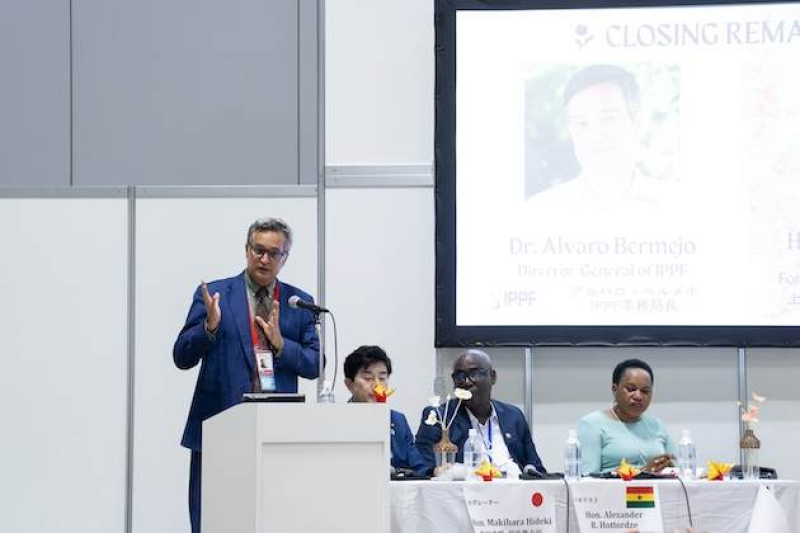- Stock market: DSE fails to sustain early gains, CSE extends rally |
- Illegal arms, disinformation pose major challenges to BD polls: Officials |
- BNP senses ‘dangerous conspiracy’ against democratic transition |
- CEC Vows Credible Election to End Stigma |
- High-level meeting reviews country’s economic progress |
Funding Crisis Heightens Need for Visionary Parliamentary Action

As funding for sexual and reproductive health rights teeters on a “cliff edge,” parliamentarians must take on a “visionary” leadership role, said Dr. Alvaro Bermejo, Director General of the International Planned Parenthood Federation (IPPF). “Financing strong, resilient health systems for all people rests with governments,” he added.
He spoke at the Let’s Discuss the Future of Africa Together seminar on August 21, held alongside TICAD9 in Yokohama, Japan. The session was organized by the Asian Population and Development Association (APDA), in collaboration with the Forum of Arab Parliamentarians for Population and Development (FAPPD) and the African Parliamentary Forum on Population and Development (FPA).
Bermejo stressed that parliamentarians’ roles are critical. “Africa’s health faces a serious challenge. WHO’s latest analysis shows health aid could drop by up to 40% this year compared to just two years ago. This is not a gradual shift—it is a cliff edge. Medicines sit unused in warehouses, health workers lose jobs, clinics close, and millions miss care.”
He added, “In this crisis lies an opportunity—to move away from aid dependency and embrace sovereignty, self-reliance, and solidarity, ensuring high-quality sexual and reproductive health services for women and vulnerable populations.”
The seminar and another in the series, Policy Dialogue on the Africa-Japan Partnership for Population and Development, were supported by the UN Population Fund (UNFPA) Arab States Regional Office (ASRO), the Japan Trust Fund (JTF), and IPPF.
Ichiro Aisawa, a member of Japan’s House of Representatives, urged joint action across borders and generations. “Youth hold the key to Africa’s future. By 2050, about 70% of Africa’s population will be under 30. Parliamentarians must harness this demographic dividend through legislation and policies, ensuring no one is left behind,” he said.
African representatives shared examples of Japan’s support. Maneno Zumura, an MP from Uganda, highlighted climate-related challenges affecting agriculture and child malnutrition. Yet Japan’s contributions to education, health, and infrastructure have improved women’s incomes by 62%, reduced maternal mortality by 50% in refugee settlements, and strengthened social services in refugee camps.
Mwene Luhamba, MP from Zambia, expressed hope for expanded partnerships with Japan in reproductive health services and youth programs.
Bermejo concluded, “While global solidarity is important, Africa needs fair terms and structural reform. Debt burdens crowd out social investment. Sexual and reproductive health services save lives, empower individuals, and drive national development.”
Yoko Kamikawa, Chairperson of Japan Parliamentarians for Population (JPFP), said cross-border dialogue strengthens legal frameworks and ensures national strategies reflect the voices of all people, especially women and youth.

